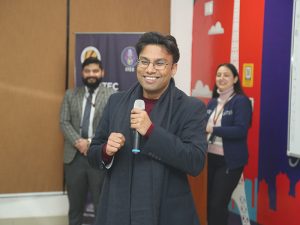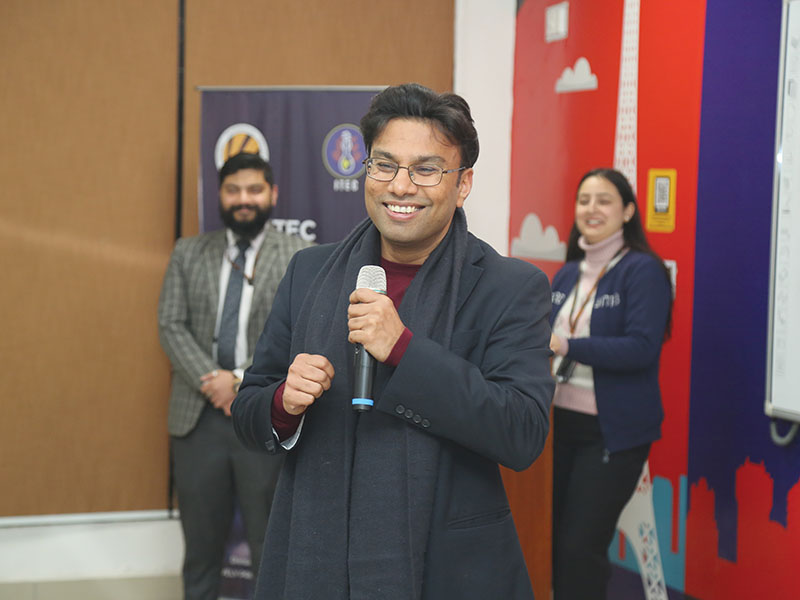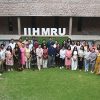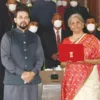21 Higher education leaders racing to develop india’s high-potential human resource: Aman Mittal
Aman Mittal
Vice President, Lovely Professional University, Phagwara

An alum of Thapar Institute of Engineering, Patiala and Southampton (UK) universities, Aman Mittal is Vice President of Lovely Professional University, Phagwara (LPU, estb.2006) which has 35,000 students from 50 countries mentored by 3,800 faculty on its muster rolls.
What are the major objectives set for LPU for 2047?
We have clear objectives to shape India’s educational future — inclusion, innovation, and future-ready learning. To promote inclusion, LPU has significantly expanded access to quality education through robust online and distance learning platforms, and providing scholarships valued at Rs.100 crore annually.
On the innovation front, LPU is building a powerful research ecosystem. With 1,418 patents filed in 2023-4 — the highest by any higher ed institution countrywide — our focus in on solving challenges in healthcare, agriculture, and sustainability. To prepare students for the demands of the future, LPU is embedding AI-driven personalisation, adaptive, skill-based curricula in all study programmes.
How satisfied are you with your progress thus far?
We are satisfied with the progress achieved thus far and are confident of surpassing it in the years to come. We have established over 500 global academic and research partnerships, enabling student exchanges, joint degrees, and international collaboration. With students receiving international placement offers as high as Rs.1 crore and Rs.2.5 crore, our future-ready model has been strongly validated.
What are your major initiatives to contemporise your syllabus /curriculum?
Our academic model is built on continuous curriculum renewal, guided by close collaboration with industry experts and international partners. We have integrated cutting-edge technologies like artificial intelligence, data science, cybersecurity, green technologies, and entrepreneurship not only into technical programmes but also in disciplines such as management, the humanities, and design. Project-based learning, interdisciplinary electives, and real-world simulations form an essential part of our pedagogy, ensuring students develop practical problem-solving capabilities.
We have also fully adopted Outcome-Based Education and implemented the Choice-Based Credit System (CBCS) to allow students academic flexibility.
How satisfied are you with your connect with Indian industry and business?
Very satisfied with our growing and strategically embedded engagement with Indian industry and business. Every year, over 1,000 national and multinational companies visit LPU for placements, including Fortune 500 companies and major Indian conglomerates such as Reliance, Tata, Aditya Birla Group, Mahindra, Infosys, HCL, and Tech Mahindra. These partnerships not only facilitate employment but also enrich the academic experience through internships, live projects, and industry-led mentorship.
In alignment with NEP 2020, LPU has introduced the Professors of Practice model, integrating experienced industry professionals into the academic framework to bridge classroom learning with industry workplaces. We also collaborate with businesses on joint research, consultancy, and CSR projects.
R&D and innovation are widely perceived as Indian academia’s infirmity. What’s your institutional response to create new knowledge?
Acknowledging R&D and innovation as traditional challenges in Indian academia, LPU has adopted a mission-oriented approach to develop a strong research and innovation culture. We have established over 15 dedicated research centres, that encourage interdisciplinary research, industry collaboration, and cutting-edge experimentation.
What’s your prescription for transforming India into a $30 trillion GDP economy by 2047?
Achieving this goal requires more than high annual growth rates. It demands a systemic shift anchored in knowledge, innovation, and institutional synergy. Education institutions must become key drivers in this transformation by reimagining themselves as dynamic knowledge hubs. By adopting interdisciplinary research, nurturing entrepreneurial thinking, and strengthening industry linkages, we can enhance the quality of human capital and align academic outcomes with national development priorities. Ultimately, a knowledge-based economy, with intellectual capital at its core, will be India’s most powerful lever for long-term, inclusive growth.
Also Read: 34 LPU faculty among world’s top 2% scientists by Stanford University
















Add comment